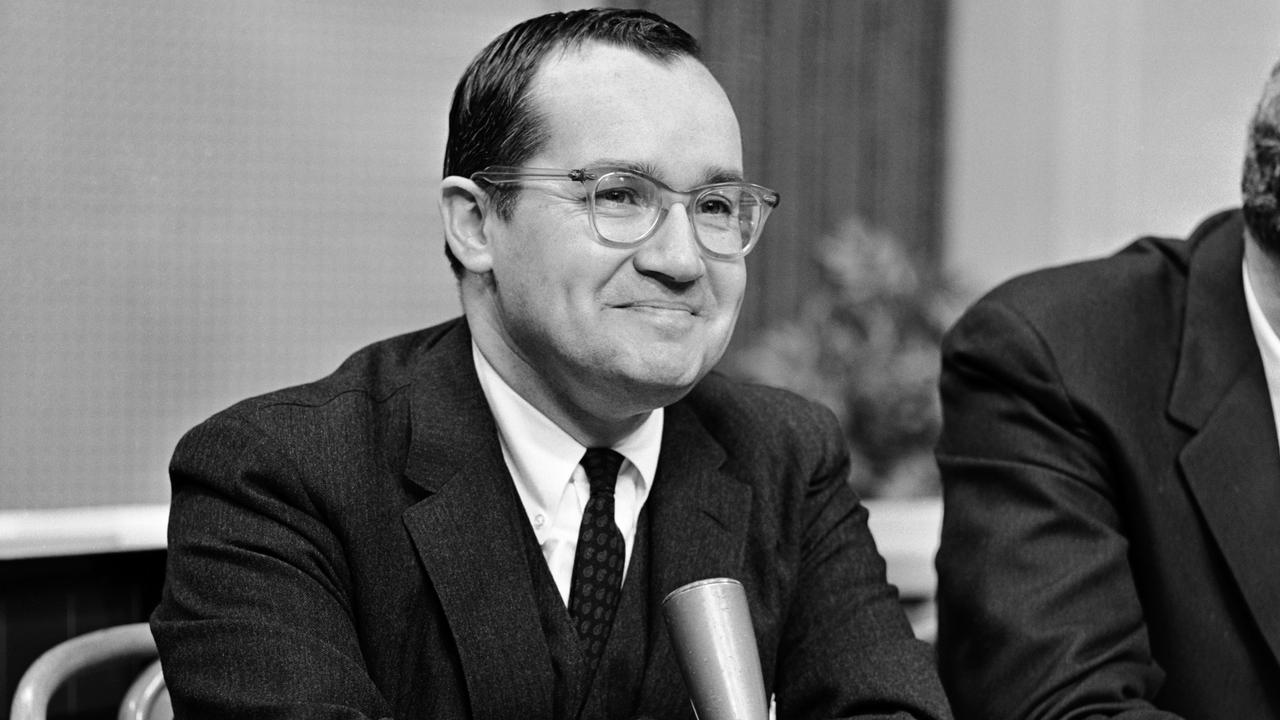Kennedy’s man thought broadcast TV should sell and also excel


But he can’t have foreseen TV shows whose core purpose was to milk and humiliate despairing attention-seekers – farmers looking for wives, strangers marrying at first sight, or Jerry Springer, at the whiffy summit of this rubbish heap, interviewing a man who had “married” his horse.
For a time, Minow controversially headed the US Federal Communications Commission. He was an outsider; network chiefs didn’t like him. And he indeed came to the role in a circuitous manner.
War broke out just as he started secondary school. Life went on as normal for most Americans until December 1941 with Japan’s shock attack on Pearl Harbor. Minow planned to study law but joined the war effort in 1944 and was stationed with the US Army in New Delhi.
He returned in 1946 a sergeant and continued his studies, earning degrees in science and law. Aged just 26, he became assistant counsel to the governor of Illinois, Adlai Stevenson, who was also running as the Democratic nominee for president that year. Stevenson was defeated by Dwight D. Eisenhower, and would be again in 1956.
A lifetime Democrat, Minow was an early supporter of John Kennedy and his run for the White House. He witnessed first-hand the role TV played in the debates between the 1960 contenders, Kennedy and Richard Nixon, and how they probably determined the winner.
Confident and experienced in foreign affairs, Nixon was expected to walk all over his young opponent. Those listening to radio thought he had. But the 65 million-strong TV audience was influenced by Nixon’s dull-coloured suit that faded into the background, his sweating under the studio lights, and a 5 o’clock shadow that was exaggerated in the black-and-white broadcast. He kept looking at a clock the audience couldn’t see to time his speeches, but to many it made him look shifty. He’d rejected makeup and his skin seemed unusually pale. Nixon’s mother called her son later to ask if he was unwell.
Kennedy won the first debate, the next three were drawn. Amazed by TV’s power, Minow discussed it with Kennedy’s brother Robert. When the Kennedys took over government in January 1961, Minow was summoned to chair the FCC. With young children in the family home, Minow found himself watching quite a lot of TV. And he was far from impressed by the “procession of game shows (and) formula comedies about totally unbelievable families”. Yet he’d just witnessed its profound power and potential.
Within weeks of starting at the FCC, he addressed a meeting of the National Association of Broadcasters. He challenged the industry’s heavyweights to watch their own channels – all day.
“Keep your eyes glued to that set until the station signs off. I can assure you that what you will observe is a vast wasteland.”

Minow wasn’t opposed to entertainment on television – he quite liked westerns – but he thought the medium needed a soul and a conscience, along with a solid balance sheet. They should aim to sell and excel. It didn’t go down well. The “vast wasteland” remark became a cliched criticism of the medium and was predictably recycled on news of his death last week.
Less remembered was that he convinced the US congress of the need for legislation allowing the deployment of communications satellites, seeing clearly their broadcast and defence potential.
He told Kennedy once, at the space centre that would one day be named after the slain president: “Communications satellites will be much more important than sending man into space because they will send ideas into space. Ideas last longer than men.”
Minow spent the rest of his life in telecommunications law, on public broadcasting boards and in educational programs, and was an original investor in Sesame Street.
But some of television’s movers and shakers never forgot his attack on them. Legendary producer Sherwood Schwartz was one. Schwartz is best known for coming up with the featherweight Gilligan’s Island and much mocked The Brady Bunch. Its lead actor, Robert Reed, who played dad Mike Brady, spent years hating every episode and tried to rewrite the final one – so they wrote him out of it.
The New York Daily News described it as “not just bad, but a low point in television history”.
You may recall Gilligan’s failed boat was called the SS Minnow – Schwartz’s petty insult to a man he claimed had “ruined television”.
OBITUARY
Newton Minow
Lawyer. Born Milwaukee, Wisconsin, January 17, 1926; died Chicago, May 6, aged 97.



It is not recorded what Newton Minow made of today’s television. Not much, one assumes. From the earliest days of the medium he believed that, left to their own devices, network bosses would lean towards programming that contracted viewers’ imaginations.